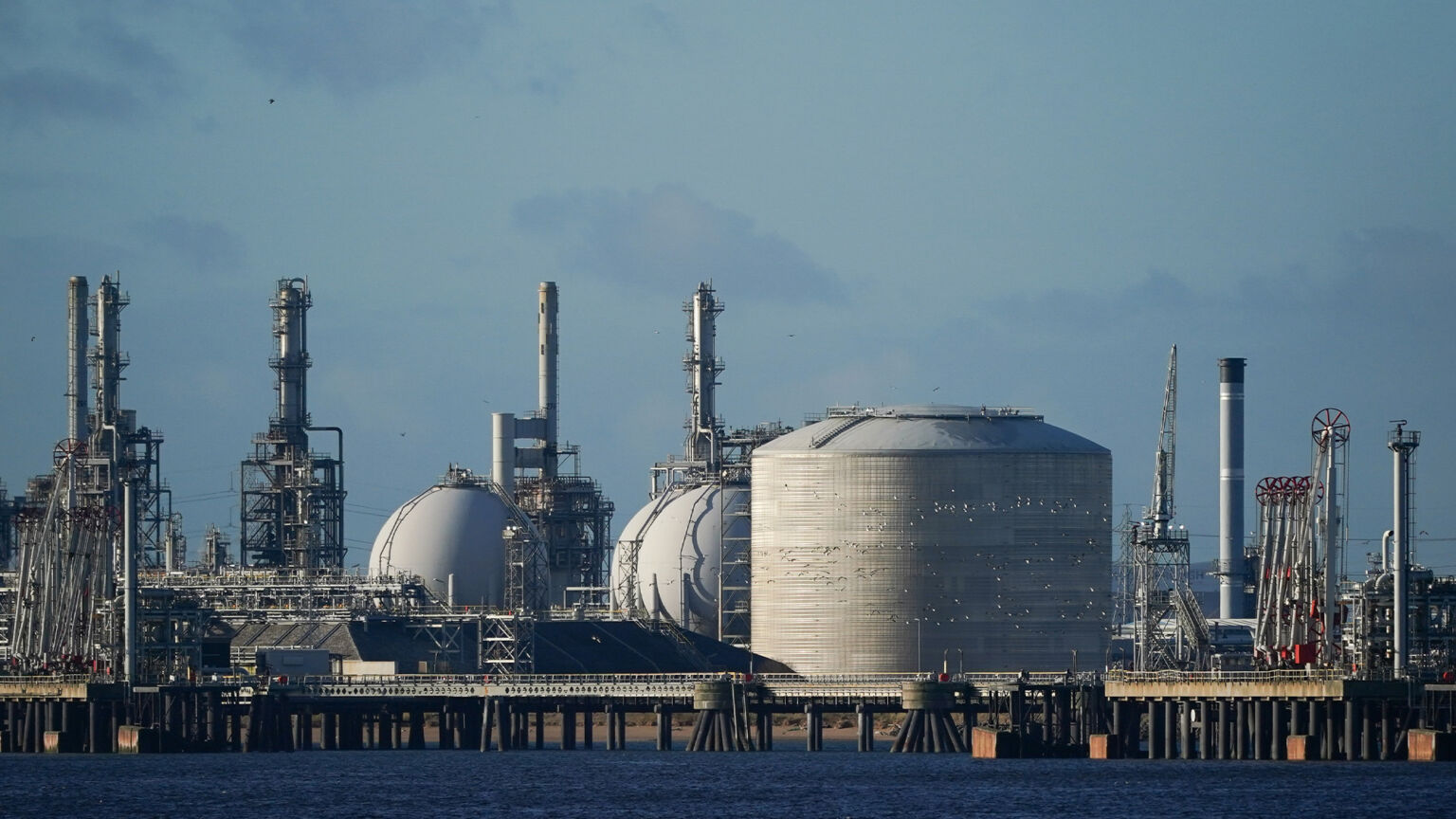The UK is squandering its gas reserves
Amid soaring prices and talk of blackouts, we need to get serious about energy.

The focus of Britain’s energy crisis has begun to shift. At a time when we are already struggling with enormous increases in the price of electricity and gas, The Times reports that the UK government has drawn up some worst-case scenarios projecting what would happen if Putin totally cut Europe off from Russian gas. The ‘reasonable worst-case scenario’ suggests that six million British homes might have to face electricity rationing, mostly at periods of peak usage during mornings and evenings this winter.
Just two days after this was reported, the Kremlin turned up the pressure on gas once more. Gazprom, the Russian state energy giant, denied gas to a Dutch government trader and to Shell in Germany.
Behind the amps and volts that are delivered to British households and businesses lie gas-fired power stations. Britain only imports four per cent of its gas from Russia, so the Kremlin’s manipulations with gas supply have less sway here than in the EU. Piped Norwegian gas and liquefied natural gas (LNG) from Qatar account for about 75 per cent of UK gas imports, at about 55 per cent and 20 per cent respectively. Gas imports as a whole account for about half of Britain’s supply.
Still, it’s worth remembering that a gas famine in Europe could one day divert Norway’s supplies away from Britain. And we are not insulated from other international pressures. At any one moment, about 40 per cent of UK electricity is generated by gas-fired power stations and gas prices are soaring worldwide. In the US, prices for gas contracts for July and August are at a 13-year high.
Worldwide demand for gas has revived with the Kremlin’s sanctioning of gas supplies to Bulgaria, Poland and Germany. Demand has also revived with the end of lockdowns – most recently in Shanghai. Meanwhile, tankers for LNG are still held up at ports and remain in short supply. The upshot is that, if British power stations can’t match the top dollar that their overseas counterparts are prepared to pay for gas, blackouts in homes and in commercial properties could follow.
Gas originating from the UK Continental Shelf currently supplies half of UK gas demand. But there has been no large new round of investment in advanced energy technologies for gas extraction, processing and transport. The government has allowed a little more drilling in the North Sea, but the combined reserves of the six oil and gas sites already granted a preliminary licence could only power the UK for six months.
So, what needs to be done? The first thing is to avoid panic. There is no need to become a survivalist with a stockpile of cans, prepping for an energy disaster. The second thing we need is a proper debate about power generation and how to develop a new and ambitious strategy for getting hold of and distributing gas from the land and seas of Britain.
That’s exactly what the government’s limp energy-security strategy doesn’t do. It wants to electrify offshore gas production and is apparently ‘open-minded’ about ‘our onshore reserves’ – ie, fracking for shale gas. This is no programme for dynamism.
Making the most of Britain’s indigenous gas supply does not mean creating some kind of autarky. We cannot escape the vagaries of what is an increasingly globalised gas market. But the fact is that gas has become more, not less, vital to Britain’s energy system. It is particularly essential as a backup for the UK’s dicey dependence on renewables. We need all the gas we can get – to keep the lights on, to keep process industries humming and to keep central heating alive.
Even now policymakers are too complacent and wedded to green fantasies. The Climate Change Committee forecasts declining demand for gas, but this is predicated on the mass adoption of heat pumps in place of gas boilers as part of the Net Zero agenda. That’s not going to happen. We’ll continue to need much more gas than the government imagines.
We need to push back against the green zealots and defend gas as an essential part of the UK’s electricity and heat mix. It is complete hubris to say that Britain must set an example to the world and stop drilling for gas. Amid talk of power cuts and heating shortages, the public will not stand for this virtue-signalling any longer.
James Woudhuysen is visiting professor of forecasting and innovation at London South Bank University.
Picture by: Getty.
To enquire about republishing spiked’s content, a right to reply or to request a correction, please contact the managing editor, Viv Regan.








Comments
Want to join the conversation?
Only spiked supporters and patrons, who donate regularly to us, can comment on our articles.